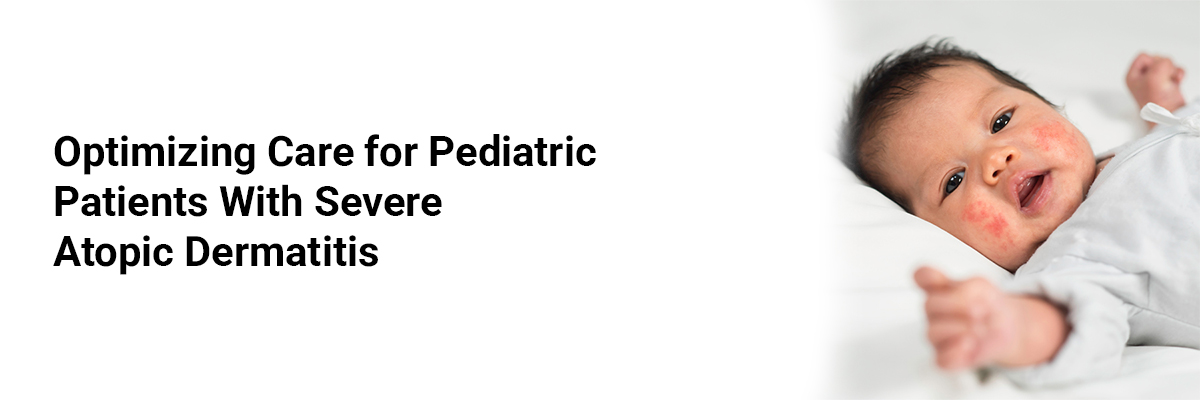
Optimizing Care for Pediatric Patients with Severe Atopic Dermatitis
Atopic dermatitis (AD) is a prevalent chronic inflammatory skin disorder, affecting approximately 12% of children worldwide. In its severe form, AD can significantly impair quality of life by causing persistent inflammation, intense pruritus, sleep disruption, and psychosocial burden, while also predisposing patients to multiple comorbidities. Optimizing management in pediatric patients is therefore essential not only to control disease activity but also to address long-term health and developmental outcomes.
Assessment of disease severity in children remains a cornerstone of effective management. Importantly, longitudinal evaluation in routine clinical practice often differs from the stringent endpoints used in clinical trials, necessitating a pragmatic, individualized approach. Treatment decisions must take into account the child’s age, disease distribution, associated comorbidities, and response to prior therapy.
The therapeutic landscape for pediatric AD continues to expand. Topical therapies remain the foundation of care, complemented by phototherapy in selected cases. For patients with severe or refractory disease, systemic interventions—including conventional immunosuppressants, biologic agents, and small molecule inhibitors—offer new opportunities to achieve durable control. Recent advances, such as Janus kinase (JAK) inhibitors, phosphodiesterase-4 (PDE-4) inhibitors, tapinarof, and microbiome-targeted strategies, are reshaping the treatment paradigm.
Equally important are nonpharmacologic interventions, including patient and caregiver education, adherence support, optimized skin care routines, and psychosocial support. The goals of therapy extend beyond reducing flares and pruritus—they also encompass improved sleep, better quality of life for children and families, and mitigation of comorbidity burden.
The management of severe pediatric AD is evolving rapidly. With emerging therapies and a stronger emphasis on holistic, patient-centered care, clinicians now have more tools than ever to improve long-term outcomes for affected children.
Source: https://www.sciencedirect.com/science/article/abs/pii/S2213219821001975













Please login to comment on this article